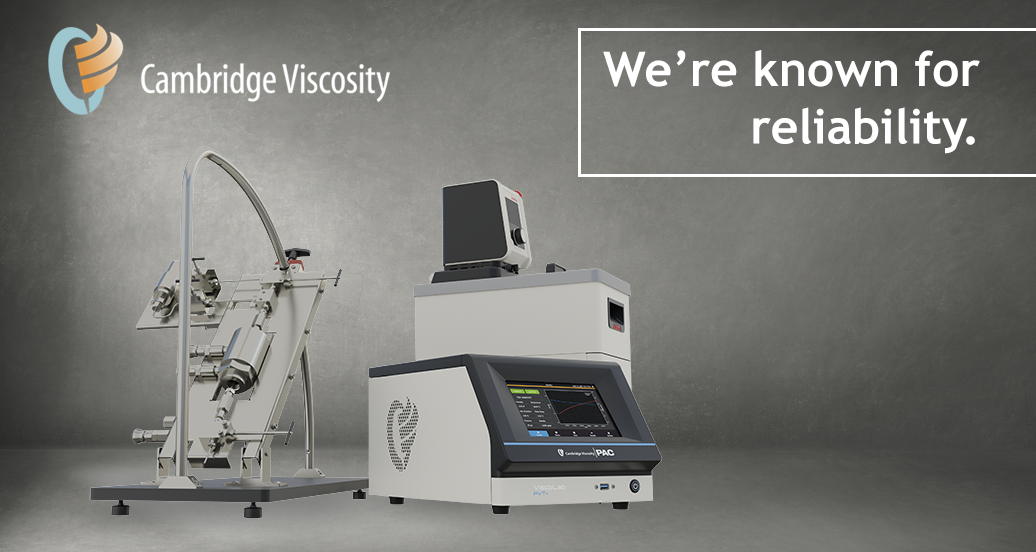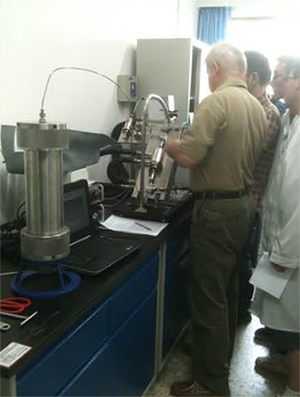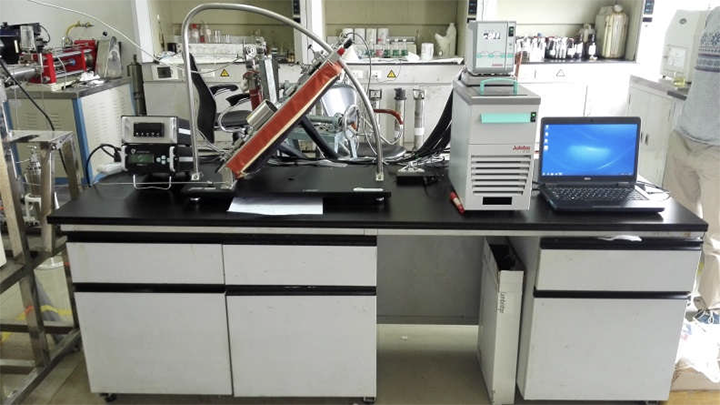 We talk a lot about the accuracy and reliability of our viscometers, and about how they can often run for years without maintenance. It doesn’t matter which viscometer you have – it’s going to be a solid instrument. The reason for this is in the design. The sensors only have a single moving part – the piston – which is electromagnetically driven through fluid in a small measurement chamber. With fluid in the measurement chamber, two coils move the piston back and forth at a constant force. Because the piston is in constant motion, it continuously scrubs the sampling area. The viscometers are self-cleaning, and they don’t require frequent recalibration.
We talk a lot about the accuracy and reliability of our viscometers, and about how they can often run for years without maintenance. It doesn’t matter which viscometer you have – it’s going to be a solid instrument. The reason for this is in the design. The sensors only have a single moving part – the piston – which is electromagnetically driven through fluid in a small measurement chamber. With fluid in the measurement chamber, two coils move the piston back and forth at a constant force. Because the piston is in constant motion, it continuously scrubs the sampling area. The viscometers are self-cleaning, and they don’t require frequent recalibration.

In 2012, Cambridge Viscosity installed the ViscoLab PVT viscometer in a lab at the China University of Petroleum (CUP), located in Beijing, to monitor the viscosity of oils and gases under 190 °C and 20,000 psi. CUP works closely with companies like China Petroleum, CNOOC, and SINOPEC to conduct research and educate the next generation of industry experts. Before purchasing the ViscoLab PVT, lab technicians were required to test the viscosity of oil samples under a high-temperature, high-pressure tank, and then wait for results to return from a lab. They had no way to test gas or carbon dioxide samples, which limited their research.
CUP was looking for a viscometer that could operate with a wide temperature range of -5 °C to 190 °C, with an exact temperature automatic control bath. They wanted the instrument to handle samples under pressures of up to 20,000 psi, as well as be rated to handle hydrogen sulfide (H2S). The ViscoLab PVT was the ideal solution. Hydrogen sulfide was no issue, as all the sample wetted parts are Hastelloy C276. It offered high accuracy and repeatability, and it was suitable to meet the ASTM D7483 and ASTM D445 standards for the oil products test stand. The instrument technicians also like how easy it was to test the samples without requiring a lot of maintenance.
Eight years after implementation, the ViscoLab PVT viscometers continue to run well. Mr. Liu Guangfeng, professor of petroleum engineering at CUP, said, “The PVT viscometer was installed and operational on the test stand, producing useful data within hours of implementation. After eight years of running, the VL-PVT condition is still very good, and handles a large amount of sample testing work at CUP.”
A similar PVT project took place in 2015. We worked with China National Offshore Oil Group Col. Ltd (CNOOC) to install a ViscoLab PVT to monitor the viscosity of oil and gas under 190 °C and 20,000 psi. CNOOC is a large, state-owned enterprise directly under the state-owned Assets Supervision and Administration Commission of the State Council of China. Headquartered in Beijing and employing 98750 people, it is one of the largest oil companies in China.
 CNOOC had extensive measurement and testing requirements, which included high temperature, high pressure, high precision, and high stability. The facility where the instrument is located is located on coastal Zhanjiang, where the environment tended to be extremely humid and salty, so the viscometer materials needed to be corrosion resistant.
CNOOC had extensive measurement and testing requirements, which included high temperature, high pressure, high precision, and high stability. The facility where the instrument is located is located on coastal Zhanjiang, where the environment tended to be extremely humid and salty, so the viscometer materials needed to be corrosion resistant.
CVI’s ViscoLab PVT checked all the boxes, but the team at CNOOC required further proof. They conducted extensive testing in the lab. Further, they noted that the ViscoLab PVT was used in PVT laboratories around the world by companies like Schlumberger, Weatherford Labs, Core Labs, and Bell Laboratories, as well as brands like VINCI and Chandler Engineering, which purchase viscometers from Cambridge Viscosity.
In 2015, the high-temperature, high-pressure ViscoLab PVT viscometer was installed and operational on the test stand, and producing useful data within hours of implementation. Six years later, the instrument continues to function as it was intended, handling a large number of samples tests every day.
If you have an older model Cambridge viscometer, we’d love to hear your story.




